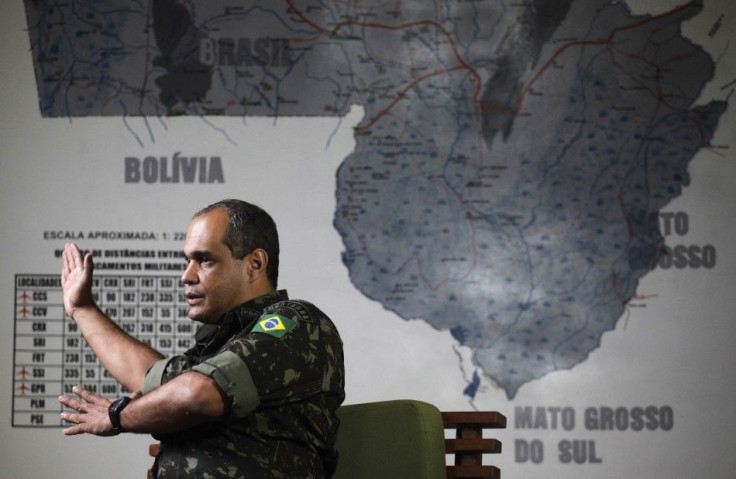Brazil Launches Massive Anti-Drug And Crime Sweep In Amazon

The Brazilian military has launched a massive operation to crack down on drug trafficking, illegal logging and mining and other criminal activity in a vast, remote swath of the Amazon.
A force of over 8,500 troops is engaged in Operation Agata 4 and will be sweeping an area that extends 3,100 miles (5,000 kilometers) along the South American country's northern border, BBC News reported.
In order to stave off any concerns among Brazil's northern neighbors about a major military operation happening near their borders, the Brazilian government sent a representative from the defense ministry, General Jose Carlos De Nardi, to Venezuela, Guyana and Suriname to inform them of the operation in advance.
I explained that it is aimed at combating crime and reinforcing the presence of the Brazilian government in the border region, one of the most remote areas of our territory, De Nardi told BBC News.
The operation will employ Brazil's air force, army, navy and federal police and will target infrastructure and technology used by drug traffickers to bring in narcotics from major drug-producing regions in South America, such as Colombia, Bolivia and Peru, which are centers of cocaine production.
Brazil's armed forces say they will bomb illegal landing strips and seize airplanes used for drug trafficking, while also patrolling for illegal logging and mining on protected land inhabited by indigenous tribes.
The military will also provide medical outreach services, bringing doctors and dentists to remote villages in the Amazon, BBC News reported.
Obstacles In Crime Prevention
Brazil is the largest country in South America by land area, and fifth in the world. Combined with being home to the largest rainforest in the world, which extends all across its northern region, these circumstances present a difficult challenge for crime prevention in Brazil's less accessible areas.
Brazil shares 16,000 kilometers (10,000 miles) of land borders with ten South American countries which are naturally difficult to monitor, due to the variety of its physical conditions, said Brazil's Minister of Justice Jose Eduardo Cardozo during a meeting with the United Nations Office on Drugs and Crime earlier in March.
Brazil has sought assistance from the UNODC to communicate and cooperate with neighboring countries in preventing drug trafficking and other illegal activities along its borders.
Brazil feels that UNODC should strengthen its role in fostering the capacities of Government bodies to identify, monitor, fight and prosecute drug and organized criminal networks, thus promoting stronger regional cooperation for this purpose, Cardozo added.
According to the CIA World Factbook, Brazil is the second-largest consumer of cocaine in the world, as well as a major hub for export of the drug to Europe.
© Copyright IBTimes 2024. All rights reserved.





















